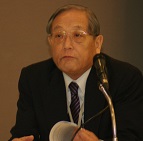Competing Interests Policy
The Asian Review of Public Administration (ARPA) is committed to maintaining the highest standards of integrity, transparency, and objectivity in academic publishing. To ensure that research is assessed fairly and without undue influence, all authors, editors, reviewers, and editorial staff are required to disclose any competing interests (also called conflicts of interest) that might affect, or appear to affect, the integrity or interpretation of the research.
Authors’ Responsibilities
Authors must disclose all interests — both financial and non-financial — that are directly or indirectly related to the submitted work.c
-
Time frame: Interests within the past three years should be reported. Any older interests must also be disclosed if they could reasonably be seen as influencing the work.
-
Purpose: Disclosure does not imply wrongdoing; it simply promotes transparency so readers can assess potential bias.
Examples of competing interests include (but are not limited to):
-
Funding: Research grants, financial support, or equipment provided by organizations with a financial interest in the publication outcome (please include funder names and grant numbers).
-
Employment: Current, recent, or expected employment with organizations that could benefit or lose from the work.
-
Financial interests: Stocks, shares, consultancy fees, speaker honoraria, or patent ownership that might be affected by the published research.
-
Non-financial interests: Editorial board memberships, advisory roles, leadership positions, expert witness roles, or personal/professional relationships that could influence objectivity..
Required Statements
Authors must include a “Declarations” section before the reference list that summarizes:
-
Funding details (if any)
-
Competing interests (financial and non-financial)
-
Ethics approval (if applicable)
-
Consent (if applicable)
-
Data or code availability
-
Author contributions
Example statements:
-
Funding: “This study was funded by [Funder Name, Grant Number].” OR “The authors received no funding for this work.”
-
Competing interests: “Author A has received consulting fees from Company X. Author B has no competing interests.” OR “The authors declare they have no competing interests.”
Authors are responsible for ensuring the correctness of these declarations. Failure to provide accurate disclosures may result in manuscript rejection or post-publication action.
Editors’ and Reviewers’ Responsibilities
Editorial Board Members, Guest Editors, and Editors must:
-
Declare any personal, academic, or financial competing interests related to a manuscript under review
-
Recuse themselves from handling submissions where they have a competing interest, such as prior co-authorship or shared institutional affiliation with an author.
-
Recuse themselves from handling submissions where they have a competing interest, such as prior co-authorship or shared institutional affiliation with an author.
-
For submissions where an editor or editorial board member is an author, responsibility for editorial decisions will be assigned to another independent editor to ensure fairness.
Reviewers must similarly disclose any competing interests and decline the review if impartiality cannot be guaranteed.
Editorial Staff
Editorial staff members are required to declare any interests — financial or otherwise — that might influence their editorial practices. All editorial decisions are made independently, and editorial standards of quality must never be compromised by financial or institutional goals.
Transparency and Accountability
The Asian Review of Public Administration (ARPA) is committed to upholding transparency at every level of the publication process. Any attempt to unduly influence editorial or review decisions — including by authors, editors, or reviewers — should be reported to the journal’s editorial office.
For any questions or to report concerns, please contact:
Editorial Office Email: secretariat@eropa-arpa.co












